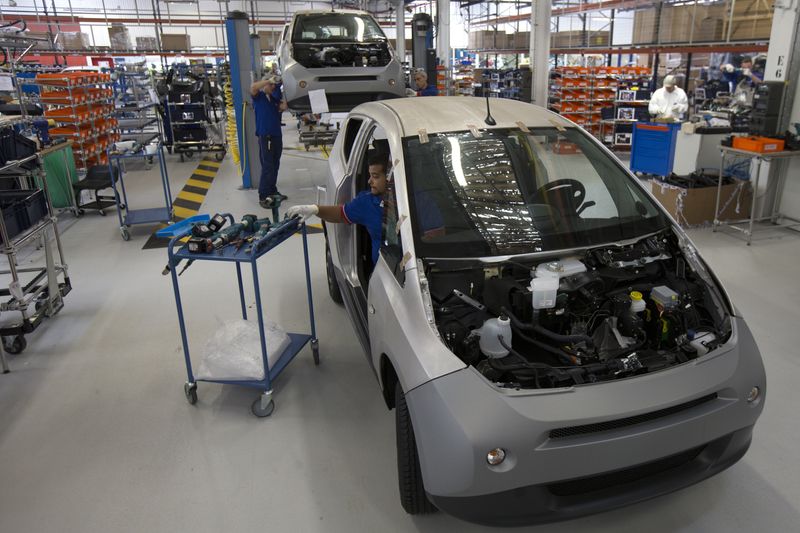BERLIN (Reuters) - Europe's electric vehicle (EV) sector risks falling behind without a robust EU industrial strategy, autos group ACEA said on Thursday citing new report findings, amid China's dominance of the supply chain and U.S. incentives for its automakers.
A new report by France's Ecole Polytechnique university shows an "immense scale of challenges" for the European Union in developing an EV supply chain, the European Automobile Manufacturers' Association (ACEA) said, highlighting risks to the competitiveness of Europe's EV production as other global regions aim high with their industrial strategies.
"Unlike China and the U.S., the EU lacks a robust industrial strategy to shore up electric vehicle manufacturing," Sigrid De Vries, ACEA's director general, said in a statement.
According to the report, China's holistic policy, which encompasses every step of an EV's lifecycle from mining to recycling, has significantly increased its competitiveness.
In the U.S., on the other hand, the boost to growth comes from ambitious sales targets both in individual states and at the federal level, as well as funding under the Inflation Reduction Act (IRA), the report showed.
Despite encouraging signals from the EU in recognising challenges to the sector, De Vries said, too often the bloc "puts the regulatory cart before the horse," damaging its critical industries.

To address climate change and give momentum to Europe's EV industry, the EU must also approach its regulatory framework holistically, she added.
"A patchwork of regulations (...) divert vital funds and undermine competitiveness," she said.